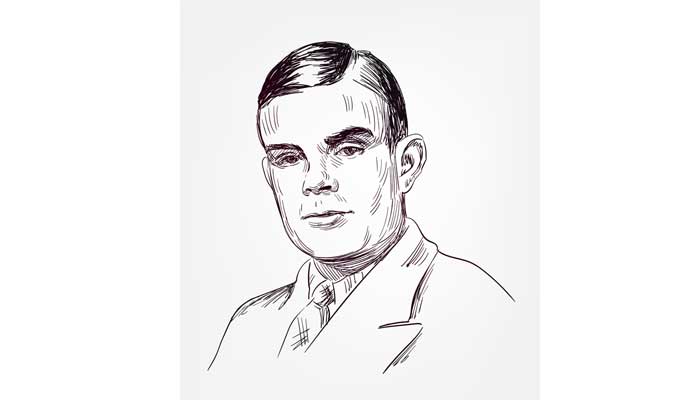
10 powerful quotes by Alan Turing
Alan Turing was a genius personality whose contribution brought a huge revolution in the world of modern science and technology.
Alan Turing, a British mathematician in the 20th century, is mostly remembered as the hero who protected his nation by cracking the Enigma code of the Germans during World War II. Besides mathematics, he was also a significant figure in several other fields such as computer science, logic, cryptanalysis, theoretical biology, cognitive science, artificial intelligence, philosophy and more. He invented the Turing machine and went on to develop a formalization of the theories of computation as well as algorithm.
Here are some powerful quotes by Alan Turing:
"We can only see a short distance ahead, but we can see plenty there that needs to be done."
"Those who can imagine anything, can create the impossible."
"Science is a differential equation. Religion is a boundary condition."
"A computer would deserve to be called intelligent if it could deceive a human into believing that it was human."
"The idea behind digital computers may be explained by saying that these machines are intended to carry out any operations which could be done by a human computer."
"Instead of trying to produce a programme to simulate the adult mind, why not rather try to produce one which simulates the child's? If this were then subjected to an appropriate course of education one would obtain the adult brain."
"Do you know why people like violence? It is because it feels good. Humans find violence deeply satisfying. But remove the satisfaction, and the act becomes hollow."
"A man provided with paper, pencil, and rubber, and subject to strict discipline, is in effect a universal machine."
"It seems probable that once the machine thinking method had started, it would not take long to outstrip our feeble powers… They would be able to converse with each other to sharpen their wits. At some stage therefore, we should have to expect the machines to take control."
"“Mathematical reasoning may be regarded rather schematically as the exercise of a combination of two facilities, which we may call intuition and ingenuity. The activity of the intuition consists in making spontaneous judgements which are not the result of conscious trains of reasoning... The exercise of ingenuity in mathematics consists in aiding the intuition through suitable arrangements of propositions, and perhaps geometrical figures or drawings."
"We may hope that machines will eventually compete with men in all purely intellectual fields. But which are the best ones to start with? Many people think that a very abstract activity, like the playing of chess, would be best. It can also be maintained that it is best to provide the machine with the best sense organs that money can buy, and then teach it to understand and speak English."










